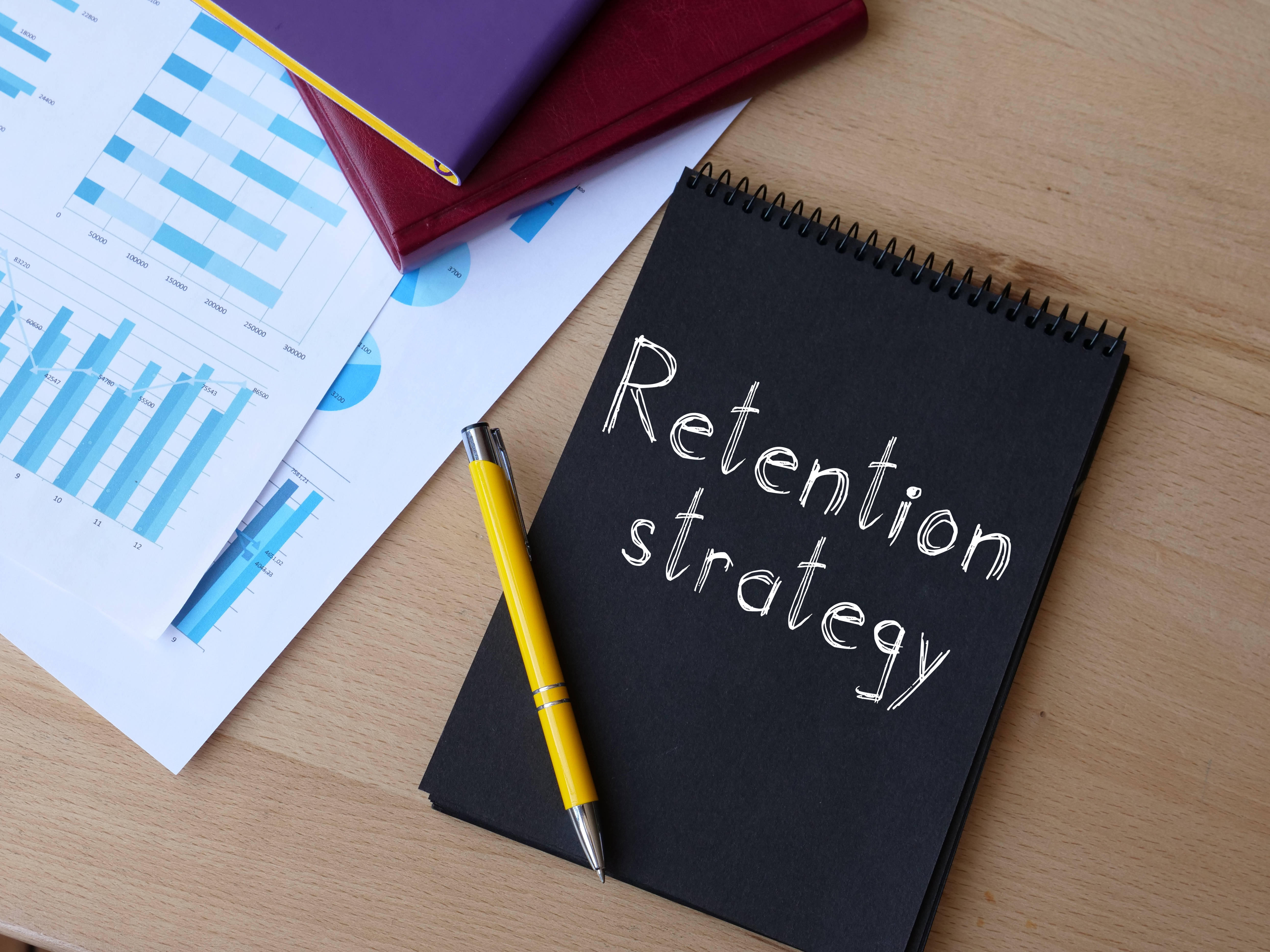5 Employee Retention Strategies to Keep Top Talent in Today’s Workforce

Are you worried about losing your star performers? Keeping your best and brightest should be a high priority for any company. Data shows that replacing an employee can cost a company a surprising 50-60% of his/her/their annual salary, not to mention other numerous incremental costs to the business. It’s important to remember that what you do NOW [while your workers are employed] is vital to your organization's success and in retaining a positive and motivated workforce.
Collegial Company Culture
In HR, we all know that high employee turnover has a negative effect on company morale. This is why it’s so important to build a corporate culture that is inclusive and supportive. Just like with customers, retention begins with satisfaction—if your customers are satisfied, they’ll be loyal by continuing to purchase products or sign on for more services with you; similarly, if your employees are satisfied, they will make a concerted effort to be dedicated to what’s best for the company. It’s also important to follow the old adage, “All work and no play makes Jack a dull boy…” — meaning that investing time and money from leadership into building bonds between coworkers goes a long way. Whether through company outings, social or teambuilding events, or company-wide meeting days bringing together in-person and remote workers, encouraging employees to get to know one another on a personal level or find commonalities between them can create a collegial corporate culture, and positively impact employee retention.
Engage All with an Equitable Environment
Equity is everything in the corporate world these days — this is why many companies have added Chief of Diversity and/or Inclusion Officers over the last few years. In fact, research from this past March coming out of Russell Reynolds reported that 53% of S&P 500 firms have such a position or equivalent; up from 47% in 2018. With the recent #MeToo movement, Black Lives Matter protests, and Anti-Asian hate crimes steadily rising over the last two years, it has become a requisite in business to make sure to create an equitable environment for ALL employees. Because engaged, respected, and appreciated employees believe in their leaders and these sentiments become reciprocated.
Frequent Feedback
Feedback in both directions has also become a focus of the employer-employee relationship. The old way of doing a one-sided, annual performance review has become obsolete; in 2021 when many employees are either remote or are working using a hybrid model, continuous feedback is not only desirable; it can mean the difference between keeping employees happy or losing them altogether. The static performance review—meaning a sole dipstick reading of an employee taken once a year—has become outdated and is not conducive to keeping a positive employer-employee relationship, and, in turn, making a satisfied employee.
Reinforcement through Rewards & Recognition
In prior decades if a company was doing well, it meant that the employees were doing well. Many performance- based raises and bonus structures hinged on the success of the entire organization. So if it was a “good” year for the economy and thus the business, then it would be a good year for the employees. This has become an outdated point of view. While company performance and reported revenues are always going to be the live-or-die drivers in business, HR and leadership has started to look at each employee and how their job performance has contributed to the department’s and company’s success. Accolades given through employee awards or acknowledgments by recognition are always well-received and show employees that they’re considered an integral part of the company’s overall success.
So when thinking about how to retain your company’s most precious asset — its employees — implementing employee retention strategies is the most effective method. To ensure that your best and most productive workers remain in-house, you need to win over your workforce by considering their concerns, hearing their voices, and accommodating their needs. Otherwise, you risk losing them to another company who will likely appreciate them more.
Mineral HR is running a webinar on “Retention: How to Keep Top Talent”, presented by Sarah Borsten, PHR on November 18, 2021 at 10 am PDT/1 pm EDT. To register, click here: https://us02web.zoom.us/webinar/register/4016306487115/WN_eGQyeJavRYaOke7uxpiYUQ
Subscribe to updates
Get the latest posts delivered to your inbox.